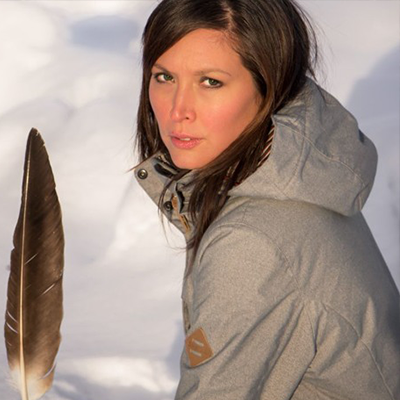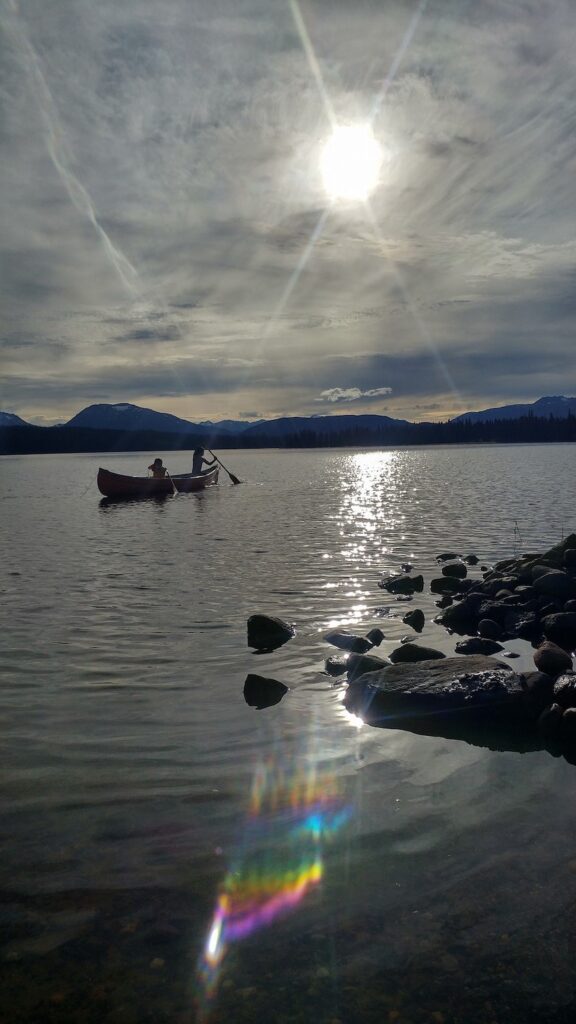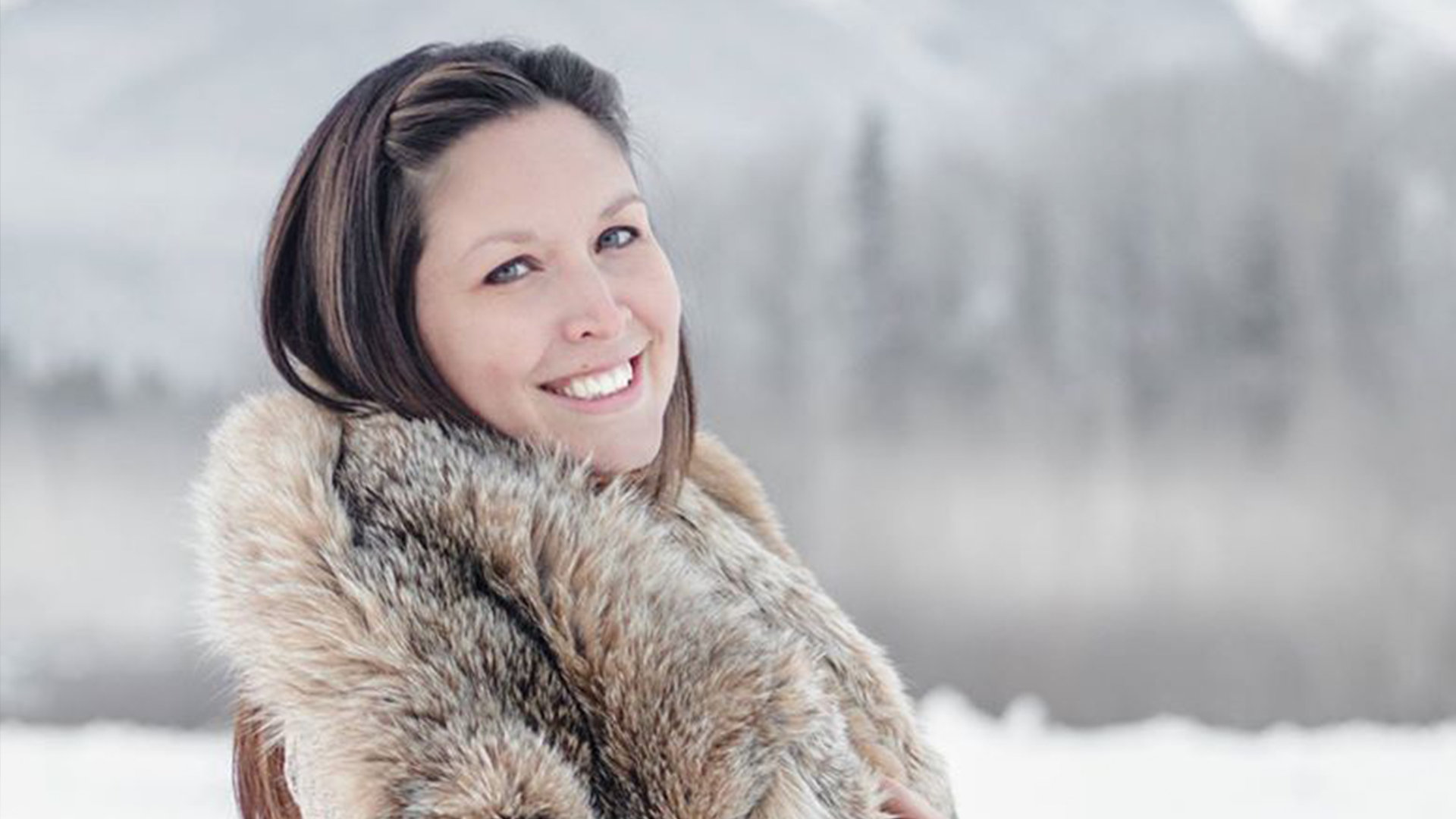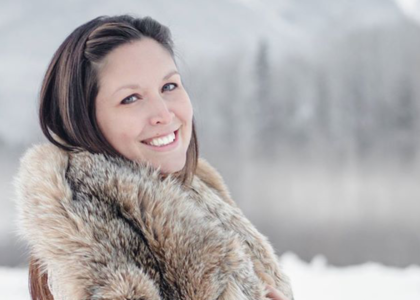Name
Sleydo’
Tribal Nation
Wet’suwet’en
Resilience

Molly Ann Wickham’s life is a testament to resilience. Molly is Wet’suwet’en. Growing up she didn’t know her relatives, her land, or her language. Her mother was a survivor of the “60’s Scoop.” In the 1960’s after residential schools, First Nation children were taken from their families and placed in white foster homes. Molly is an intergenerational survivor of the residential schools and the 60’s Scoop in British Columbia.
After completing her university degree, Molly returned home with her family with the intention to relearn what it meant to be Wet’suwet’en. It was not a simple task to move back and gain all the knowledge lost. Molly laughs when she says she gave herself five years to learn the language. But Molly is resilient and wise. She took time to build relationships with elders and mentors. With her family, she hosted weekly dinners. She put herself out there to learn and gave back whatever she could. She understands giving back.
Molly shares what she has learned with others and takes the responsibility to create opportunities for healing on the land and water—to assist others in building relationships with the land, culture and history.
Her previous work was as the Governance Director at the Office of the Wet’suwet’en where she regularly held community meetings to engage her clans and nations in their traditional laws. She has a fierce belief that her people’s laws, language, lands and culture are relevant to the lives of young women today. With support from elders she is working to bring back the practice of “wiggus” which translates to “the practice of respect.”
Molly is actively involved in land defense and reoccupation of traditional territories. This activism is mostly led by women. She lives on her family’s territory in a cabin she built with her husband in 2012. It is located on Lhudis Bin, a lake in danger of becoming a site for mine tailings. Molly is passionate to raise her three children on the land, growing up knowing what it means to be Wet’suwet’en.




